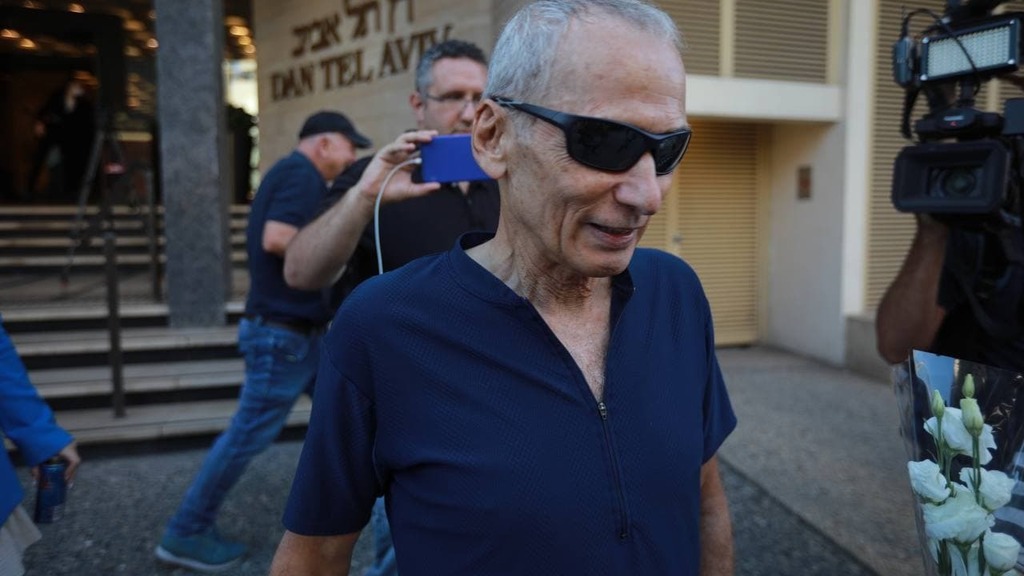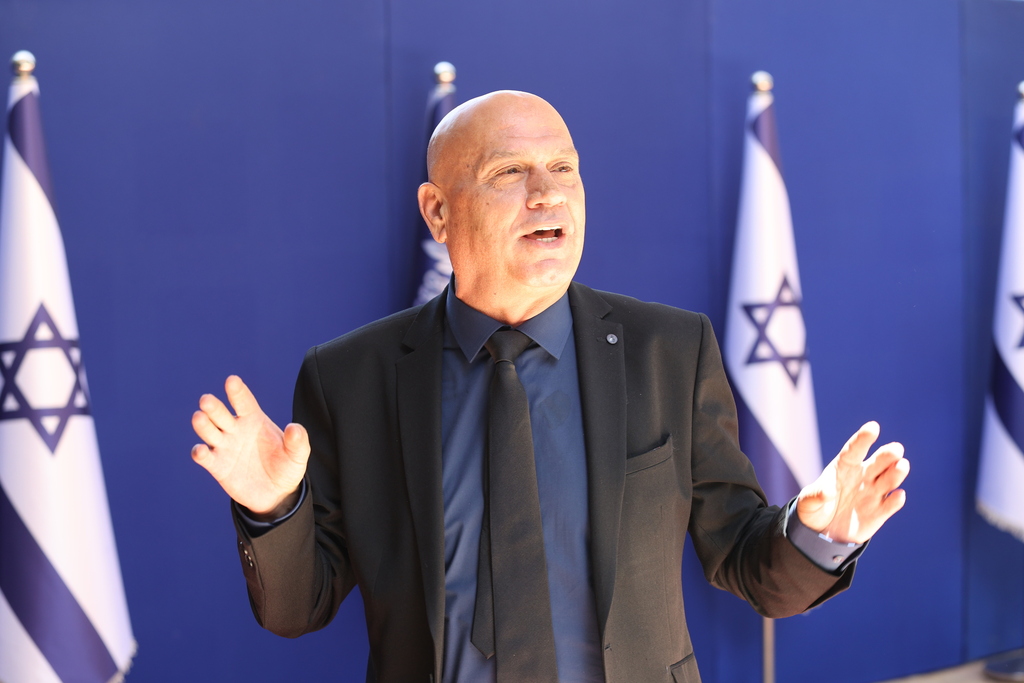Getting your Trinity Audio player ready...
After a day of ceremony and procedure, the members of Israel's new government got to work Monday, preparing to take over their respective ministries.
At 11am, all 27 members of the new cabinet gathered with Prime Minister Naftali Bennett at President Reuven Rivlin's official residence in Jerusalem for the traditional official photograph.
6 View gallery
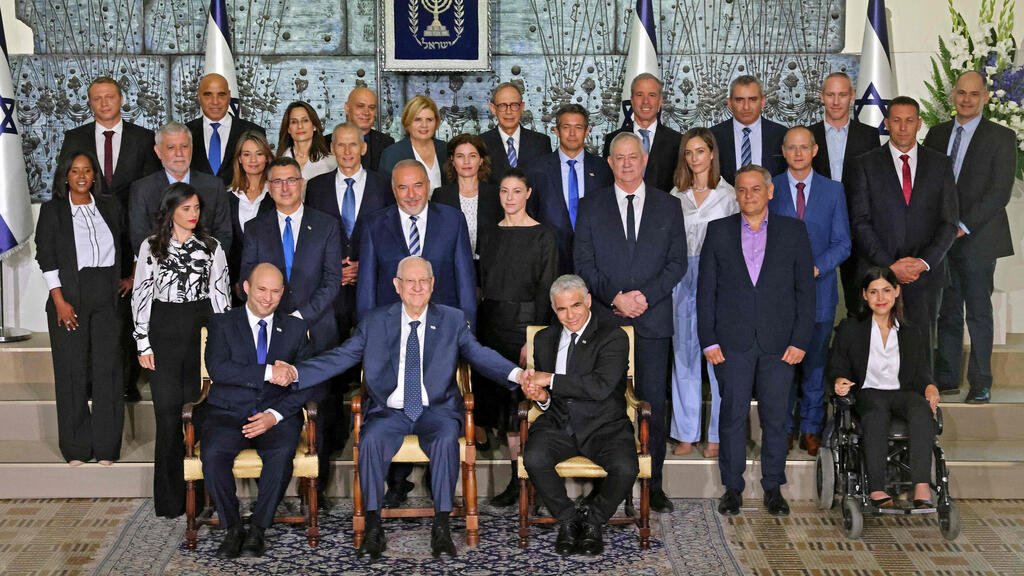

Israel's 36th government gathers for its official photo with Presidential Reuven Rivlin at his Jerusalem residence Monday
(Photo: AFP)
While some ministries were to hold ceremonies to mark the handover of responsibilities, Benjamin Netanyahu declined to offer this courtesy to his replacement Bennett.
(Israel's 36th government gathers for its official photo with Presidential Reuven Rivlin)
Instead the former prime minister, who left office Sunday after 12 years, was holding a private meeting with Bennett.
In addition to the matters of state, the two were expected to discuss a timetable for the Netanyahu family to quit the official prime minister's residence on Balfour Street in Jerusalem.
6 View gallery
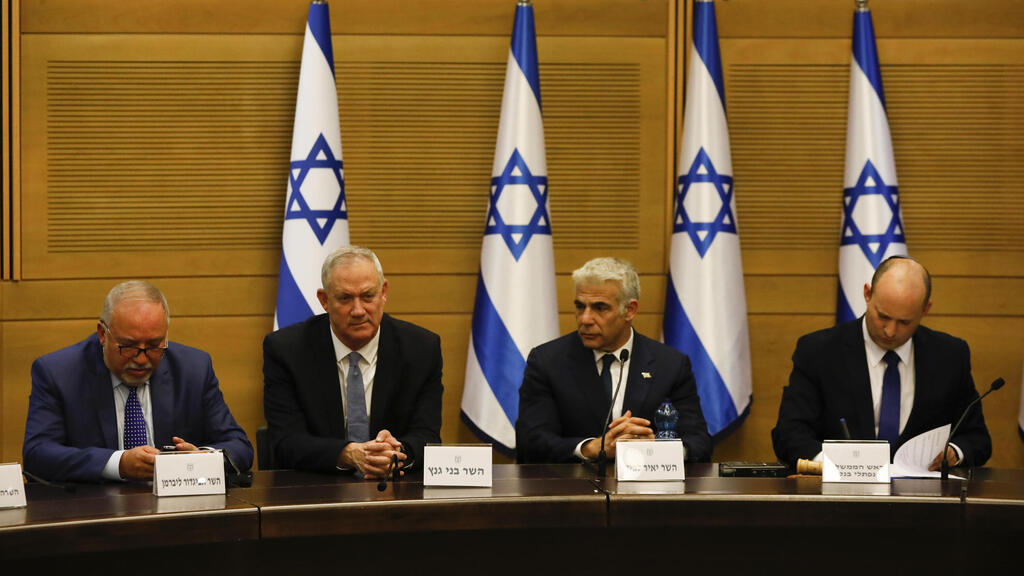

Finance Minister Avigdor Liberman, Defense Minister Benny Gantz, Foreign Minister Yair Lapid and Prime Minister Naftali Bennett meeting Sunday night for the first time after the new government was sworn in
(Photo: AP)
Bennett has said he would prefer to stay at his Ra'anana house, but may have to move his family into the official residence if security considerations dictate it.
Bennett's own home has not been fitted with the all-important "red telephone," the secure means of communication used by all Israeli prime minister, as Netanyahu's staff had declined to make any preparations to transfer power to his replacement.
Despite the role of the National Security Council in preparing any new prime minister, its members claimed it was not their job to prepare Bennett's prime ministerial office.
6 View gallery
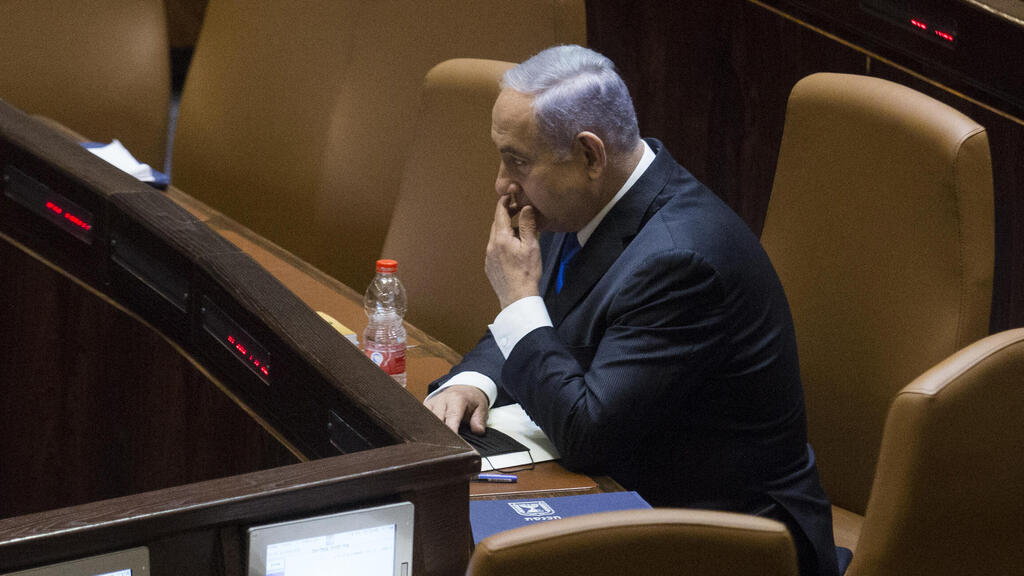

Former prime minister Benjamin Netanyahu during the special Knesset session convened to approve a new government on Sunday
(Photo: Getty Images)
There will also be no ceremony for the Minister of Public Security Omer Bar-Lev, who has stepped into the same role that as his late father Haim took in 1984, during a Likud-Labor national unity government.
"With tensions high in Jerusalem, I am not interested in preoccupying the police force with ceremonies and believe the force must concentrate on the mission at hand," Bar-Lev said.
Regional Cooperation Minister Issawi Freij from the Meretz party, Israel's second ever Muslim minister, also said he was not interested in a ceremonial handover, He wrote on Twitter late Sunday that his Likud predecessor Ofir Akunis had said the ministry was superfluous and that he had no interest in a ceremonial event, and therefore there was no need to meet.
"Akunis should educate himself on how an orderly transfer of power is carried out," Freij said.
After the new cabinet was approved in the Knesset by a one-vote majority on Sunday, Bennett said his government's first task was to heal the rifts in Israeli society.
"The difficulties of forming a unity government are behind us, now the citizens of Israel look upon us," Bennett said.
"Now we must prove ourselves and work together in unity and cooperation to mend the rift among the public and return the state to proper governance after debilitating internal squabbles," Bennett said as his cabinet held its first meeting after being sworn in Sunday night.
6 View gallery
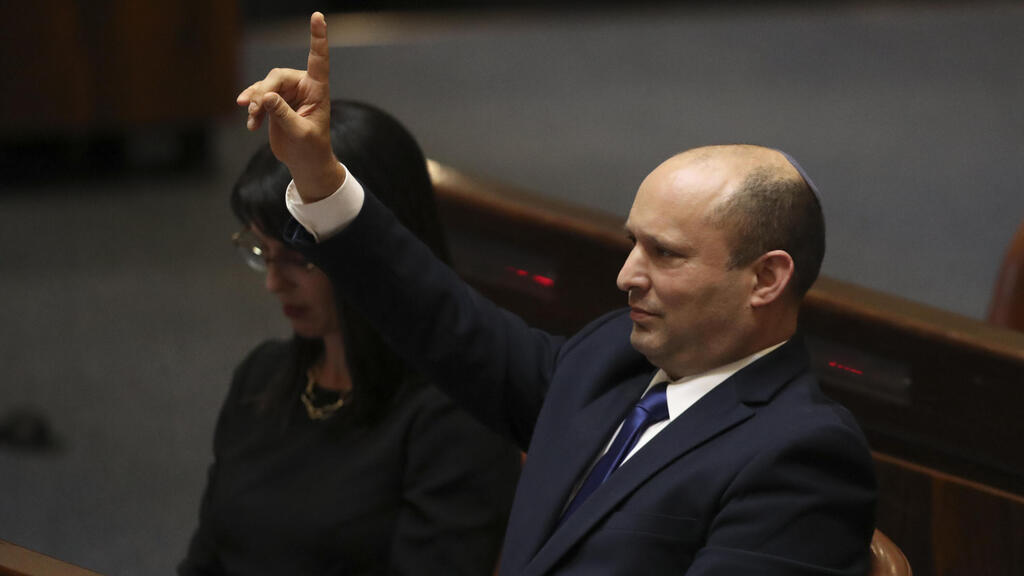

Prime Minister Naftali Bennett votes to approve his new government in a special Knesset session on Sunday
(Photo: AP)
Netanyahu was often accused by critics of being a divisive leader who deliberately pitted sectors of the society against one another during the past two years of political stalemate.
Alternate Prime Minister Yair Lapid said that mutual trust and friendship was the basis of the new coalition and would ensure its continued survival.
First published: 08:34, 06.14.21


